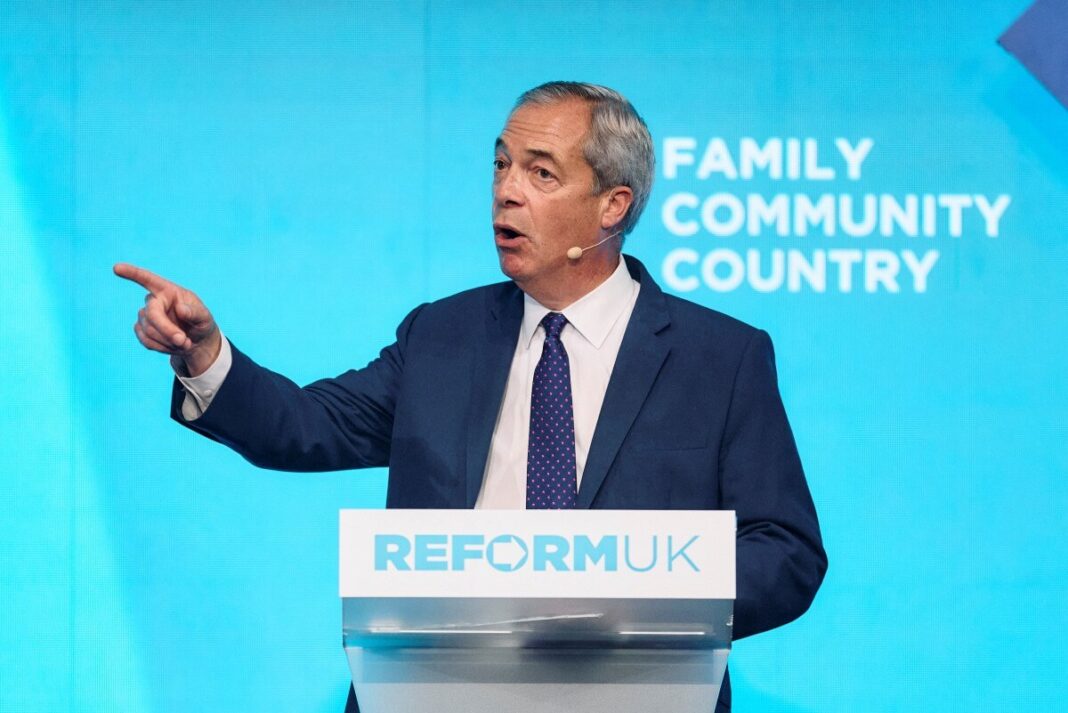Tarık Toros*
It sounds like the premise of a dystopian novel, but it is the political reality unfolding before us. Across the West, traditional parties are in retreat, while far-right movements surge ahead. Elections, once seen as a bulwark against extremism, are instead legitimizing leaders and ideologies once relegated to the fringes.
What explains this dramatic shift? Why are voters turning away from the political center in favor of radical alternatives? And the most unsettling question of all: Can democracy correct itself, or has it already sown the seeds of its own demise?
A glance at the United Kingdom offers a troubling preview of where things may be headed.
The center cannot hold
In democracies across Europe and North America, once-marginal far-right parties are gaining traction by tapping into deep-seated anxieties over immigration, cultural identity and economic decline. Their rhetoric thrives on division, resentment and nostalgia for a past that never fully existed.
Yet the most striking development is not the rise of these parties, it’s the willingness of voters to overlook their histories of extremism, racism and authoritarian tendencies. Rather than recoiling from the past statements or actions of these leaders, many voters are saying, “Let’s give them a chance.”
But have these parties demonstrated the ability — or even the intent — to solve the pressing issues facing society? And if they fail, will democracy be able to self-correct, or will the system itself be too battered to recover?
Some argue that the current democratic order is broken beyond repair and must be torn down entirely. But history offers a warning: Revolutions rarely deliver the outcomes their supporters expect.
The UK’s political upheaval
Nowhere is the volatility of the political landscape more apparent than in Britain. The latest Sky News/YouGov poll shows Nigel Farage’s Reform UK surging past the Conservatives and edging ahead of Labour.
With 25 percent of the vote, Reform UK is reshaping British politics, forcing the country into a new era of three-party competition. The shifts are seismic: One in five 2019 Conservative voters has defected to Farage’s party. Even Labour is struggling with retention — just 54 percent of its 2024 supporters plan to vote for the party again in another election.
Meanwhile, the government is in free fall. Economic growth remains sluggish, social policies are under fire and political scandals pile up at a dizzying pace. It is the perfect storm for populist insurgents.
The allure of the strongman
Perhaps the most unsettling trend, however, is among young people. According to a Channel 4 report, 52 percent of Gen Z in the UK say they prefer a “strong leader” who can bypass elections and parliamentary delays. In other words, a generation raised in democracies is showing a growing comfort with authoritarianism.
This is not an accident. Unlike previous generations, today’s young voters are shaped not by televised debates or newspapers, but by algorithm-driven social media feeds. Democracy’s slow and often messy processes — checks and balances, judicial oversight, legislative compromise — feel out of step with an age of instant gratification.
For many, politics is just another form of entertainment. Leaders like Donald Trump remain compelling figures, not in spite of their scandals, but because of them. In an era where attention is currency, demagogues thrive while traditional politicians struggle to break through the noise.
Just as no one listens to full albums anymore — skipping through 15-second TikTok clips instead — voters increasingly expect their politicians to be fast, punchy and provocative. Complexity is out. Outrage is in.
The democratic dilemma
These trends present an existential challenge to liberal democracy. Misinformation spreads at an unprecedented pace, with tech platforms prioritizing engagement over truth. Meanwhile, Gen Z struggles to distinguish fact from fiction — 45 percent of young men, for example, believe women’s rights have “gone too far.”
Many feel locked out of economic and political power, convinced that the system is rigged against them. And when politics is seen as a zero-sum game—where one group’s gain means another’s loss — people become more willing to embrace extreme measures.
A precarious future
The rise of far-right populism is not an anomaly. It is a symptom of deeper fractures in democratic societies. And while independent institutions and a free press remain crucial to countering these forces, their resilience is far from guaranteed.
For now, the momentum belongs to the far right. That much is clear.
But the future is not yet written. If democracy is to endure, it must prove itself capable of addressing the frustrations driving voters into the arms of extremists. The question is not whether the fight for democracy is worth it — it is whether enough people are willing to engage before it’s too late.
If not now, when?
*Tarık Toros is a well-known journalist and political commentator currently living in exile in the UK. He was formerly the editor-in-chief of Bugün TV, which was seized by the Turkish government in 2015 and subsequently closed down. Toros co-founded MoonStar TV, a YouTube platform dedicated to providing independent journalism for Turkish-speaking audiences. Through his personal channel and other platforms, he analyzes political developments, governance and social issues in Turkey.



